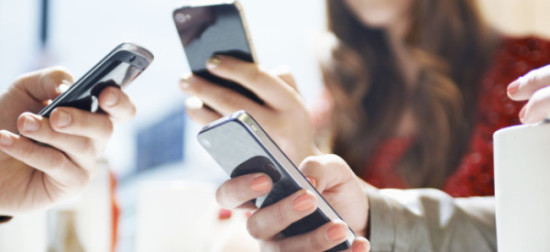Everyday technology consumes everybody’s life as cell phones, computers, tablets and other high-tech devices aren’t only objects, but also close friends. And for those who are highly connected to their devices, going without them, even for a couple of minutes, can be an anxiety-ridden experience.
The majority of American adults (56 percent) own a smartphone, according to a recent research by the Pew Research Center. Having the ability to check your e-mail, play games, and browse the Internet right in your pocket is a step forward for technology and staying connected to the workplace, but it may come at a cost.
Nomophobia, or the pathological fear of being out of touch with technology, is a somewhat modern disease. It’s essentially a side effect of the changes that cell phones have delivered to our habits, behavior and even the way we perceive reality. The whole relationship becomes defined via mobile texting and colourful little emoticons, from saying “I love you” to “I guess we should move on.”
So how did this occur? Have smartphones become an extension of Americans or is everybody simply a victim of a fast-paced, always-connected society? Chances are it is both.
Chuck Howard, licensed psychologist and head of the psychology program at Argosy University, Denverbelieve it can be more complicated than simply labeling the problem.
“Nomophobia is the result of people becoming increasingly electronically connected until their technology-based networks and relationships become their home communities,” said Howard. “Losing that connection is basically a form of electronic expulsion. They are afraid of being banished, or of losing their ‘social village’.”
The term was initially coined from a 2010 study by YouGov, a UK-based research organization that wanted to look at the anxiety experienced by cellphone users. The study found that men and ladies often feel stressed when their cell phones are turned off.
“Nomophobia can be a symptom of potential addiction”
-said Howard. “Users who are happy and having fun while using their device, then deal with intense stress and anxiety without it. They may be obsessed with it. They could not put it down. That’s when real addiction becomes a threat.
When you see a behavior becoming destructive, and admit to having a problem, you can deal with it in the same way as any other type of addiction. “Develop strategies to meet your social needs in other ways… without relying on electronic platforms,” advises Howard.
Start by resisting the urge to continually check your phone. Try limiting the number of your mobile social media networks and look at joining more professional networking groups or face-to-face sports clubs. Take time to leave your phone alone, such as at dinner, with friends, or at bedtime.
If it becomes an addiction and starts to weigh on your relationship, consider asking others around you for their opinions. Be open to some sort of intervention in which family and friends may openly tell you their thoughts. No need to be cold, just take a few small steps at a time to disconnect and enjoy the world around you, without looking through the smartphone screen. And lastly if you cannot do it yourself then seek professional help.
(BPT)












